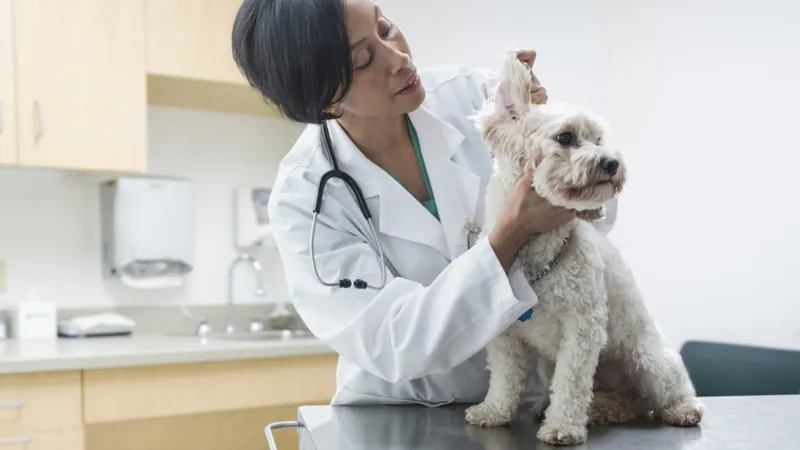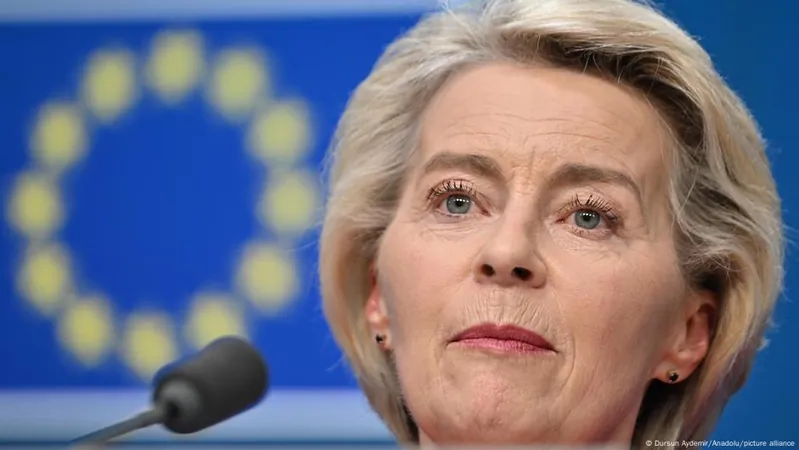
DC Veterinarians on High Alert for Inauguration-Related Health Risks
2025-01-20
Author: Jia
Overview
As the nation gears up for the presidential inauguration in Washington, DC, veterinarians in the region have been placed on high alert for any unusual illnesses in pets and wildlife. The heightened vigilance comes in light of potential zoonotic bioterrorism threats, a concern weighing heavily on public health officials.
Enhanced Surveillance
In a recent communication directed to Virginia veterinarians, the state health department emphasized the need for 'enhanced surveillance' during the inaugural festivities from January 19 to January 21. Although there are currently no reported threats or illnesses linked to bioterrorism, officials are urging veterinarians to remain vigilant for any anomalies. 'As with any large-scale public event, there will be heightened security, and the region will be on alert for signs of bioterrorism or other potential threats,' the letter stated.
Monitoring Guidelines
Veterinarians are specifically asked to monitor animals that display unusual or severe illnesses within a 14-day window following exposure to the National Mall area. This watchful eye applies both to animals that might travel to the area as well as those that reside there. Should veterinarians encounter such cases, they are instructed to promptly report their findings to the state's Zoonotic Disease Program, which is overseen by health officials, including State Public Health Veterinarian Julia Murphy.
One Health Perspective
Murphy highlighted the importance of this initiative, noting that the health department has employed similar measures in the past during previous inaugurations. This approach underscores the potential risks posed by zoonotic diseases—those that can be transmitted between animals and humans—and showcases a 'One Health' perspective that recognizes the interconnectedness of human, animal, and environmental health.
Animal Sentinels
Animal illnesses can serve as early warning signs during outbreaks or bioterror events, thus providing crucial information regarding the nature and geographic scope of potential health threats. A prime example cited by Murphy is Francisella tularensis, the bacterium responsible for tularemia, which represents a significant risk for small mammals like rabbits and rodents. 'Their incubation period can often be shorter than in people,' Murphy noted, shedding light on why animals are considered vital sentinels in detecting emerging health risks.
Birds and Public Health
Additionally, the role of birds in public health has been historically significant. For instance, birds were instrumental in identifying the arrival of West Nile Virus in North America in 1999, when an outbreak among birds led officials to uncover a cluster of human cases of encephalitis in New York.
Vigilance for Health Threats
As the inauguration approaches, health officials remain vigilant for a range of recognizable threats, including anthrax, tularemia, and Ebola. Symptoms to monitor include fever, abnormal swelling, and severe neurological signs. However, Murphy cautioned that these examples are not exhaustive; any unusual ailments paired with exposure to the inauguration area warrant attention.
Proactive Reporting
For veterinarians, the message is clear: any observation of an unusual illness potentially linked to the inauguration events should be reported. This proactive approach enables immediate communication with diagnostic resources and coordination with the Centers for Disease Control and Prevention (CDC) and the US Department of Agriculture (USDA).
Confidence in Partnerships
Murphy expressed confidence in the existing partnerships between public health systems and the veterinary community, anticipating that any concerning developments would be relayed swiftly. 'If something was to happen, I have a high degree of confidence that we would hear about it early and quickly,' she concluded.
Conclusion
As the nation watches the inauguration unfold, both officials and veterinarians will be on the front lines, safeguarding the health of both animal and human populations in DC and beyond.



 Brasil (PT)
Brasil (PT)
 Canada (EN)
Canada (EN)
 Chile (ES)
Chile (ES)
 Česko (CS)
Česko (CS)
 대한민국 (KO)
대한민국 (KO)
 España (ES)
España (ES)
 France (FR)
France (FR)
 Hong Kong (EN)
Hong Kong (EN)
 Italia (IT)
Italia (IT)
 日本 (JA)
日本 (JA)
 Magyarország (HU)
Magyarország (HU)
 Norge (NO)
Norge (NO)
 Polska (PL)
Polska (PL)
 Schweiz (DE)
Schweiz (DE)
 Singapore (EN)
Singapore (EN)
 Sverige (SV)
Sverige (SV)
 Suomi (FI)
Suomi (FI)
 Türkiye (TR)
Türkiye (TR)
 الإمارات العربية المتحدة (AR)
الإمارات العربية المتحدة (AR)